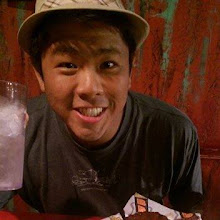Romans 10
Brethren, my
heart’s desire and my prayer to God for them is for their salvation. For I
testify about them that they have a zeal for God, but not in accordance with
knowledge. For not knowing about God’s righteousness and seeking to establish
their own, they did not subject themselves to the righteousness of God…
The shadows across the tops of my feet are
deepening. I am growing accustomed to the walks beneath the intense Zambian sun
which casts its shadow upon my skin a little more thoroughly with every passing
day. With every imprint in the red, dusty road, it excites me to remember that
God thinks my feet are beautiful, for it indeed is good news that they carry.
On a typical day, Kolezi wakes up in his
Copperbelt University residence, alongside three other young men who all share
two twin mattresses in one room. Due to a lack of housing infrastructure on and
around campus, this arrangement is common and still four occupants short of the
worst case scenario. He is an undergraduate student in business administration,
hailing from the capital city. At the age of thirteen, Kolezi lost his mother
to pneumonia, becoming an orphan. He finished his exams under the supervision
of his grandparents before moving in with his uncle. Devastated and
consequently separated from his younger brother, Kolezi needed purpose and
hope. Shortly thereafter, he found it; the young man met Jesus.
Nine years later, Kolezi entered into the
company of a group of men led by Chapo Masona. This group met under the name of
The Navigators to study the Bible and discuss its implications for life. Chapo
had arrived a few months prior to begin a ministry at Copperbelt University of
training men and women to be noble and influential Christians. Since then,
recruits like Kolezi and his three roommates had agreed to meet with Chapo to
learn what the Scriptures say about their faith. On one particular night,
Kolezi and his roommates welcomed some new and excited faces into their lives.
 |
| Meeting new friends: Bryce, Evans, Kolezi, Ephraim, and Me in A206 |
Bryce and I knocked on the door of A206, the
first on a list of Navigators’ residences. Wilfred, one of Kolezi’s roommates
welcomed the fair-skinned strangers with an air of intrigue. Within the hour,
Bryce and I were exploring the campus alongside our new companions. We shared
richly in the ways of life, academics, family, and faith. Life on campus has
its similarities to the life I knew at Purdue. As I learn about the
differences, I also look forward to the depths we may share together in the
gospel. These steps down to the East Gate of Copperbelt University have also
been a blessing to me.



